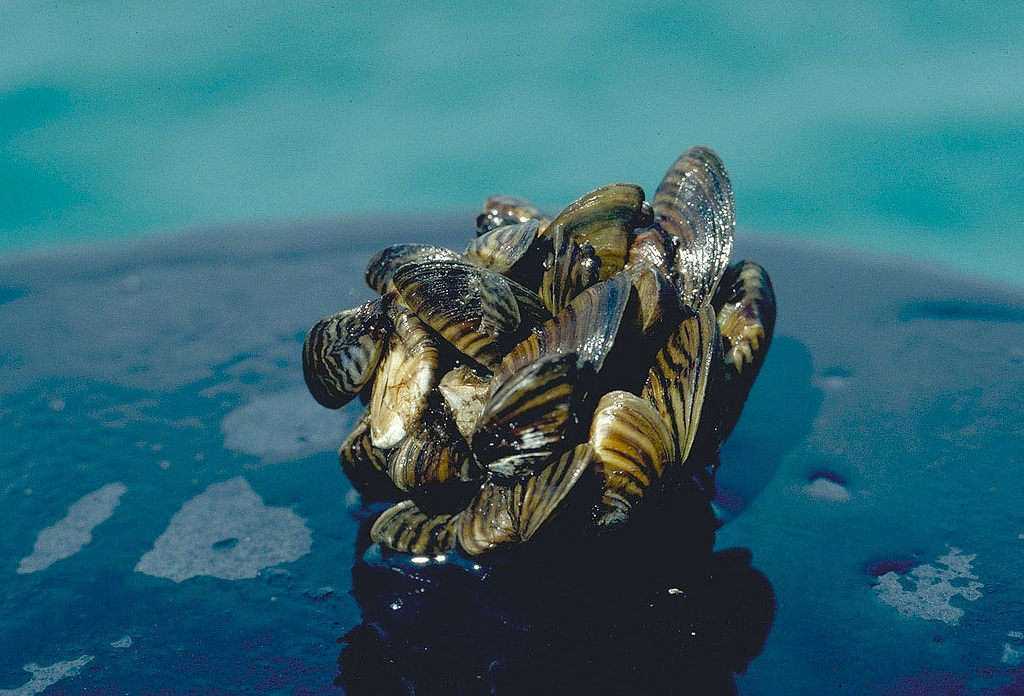The Okanagan Basin Water Board (OBWB) is calling for additional regulations to further protect B.C. waters from invasive mussels.
“Until we know we are in the clear and there is no chance of invasive mussels making their way into our waters, we are going to be pushing for senior government to do all they can to protect our waters,” said Sue McKortoff, chair of OBWB. “Our lakes are not only an important tourist destination, they are important as a source of drinking water, to our fishery and the Okanagan’s delicate ecosystem, and much more.”
As of July 5, the most recent stats available, 384 high-risk watercraft were intercepted coming into B.C. Of these, 35 decontamination orders with quarantine periods were issued to meet the 30-days-out-of-water requirement.
Of the 35 decontaminated for mussels, nine boats and one kayak were found to be carrying adult invasive mussels. The watercraft were coming from Ontario (6), Utah (2), North Carolina (1), and Michigan (1). Two of the 10 were headed to the Okanagan, while the others were destined for Vancouver Island (3), the Lower Mainland (2), the Kootenays (2), and Alaska (1). The program received advance notice from other jurisdictions on eight of the 10 mussel-fouled watercraft.
“It’s wonderful that we have 64 inspectors, three full-status conservation officers who can chase down those who fail to stop at inspection stations, and two K9s to help sniff out mussels,” McKortoff said. “But we only have one of 12 provincial inspection stations that are open 24-hours a day and there is no requirement to get an inspection when a station is closed. We need to tighten things up. This is of paramount importance.”
In particular, the OBWB is repeating its call for legislation requiring that all watercraft entering B.C. be inspected before being allowed to launch in provincial waters. It is also recommending the province implement “pull the plug,” legislation already implemented in Alberta and in Northwest states, requiring drain plugs be removed from watercraft before transport.
OBWB also recommends renewing a public-private partnership between the province and several partners, including BC Hydro and Fortis B.C., which has helped fund the inspection program and expires in early 2021. And finally, the OBWB is calling for the province to increase the program’s funding to at least 2017 levels of $4.45 million to expand and strengthen the program.
For its part, a letter sent by the Okanagan Basin Water Board (OBWB) to B.C. Minister of Environment and Climate Change George Heyman, the OBWB’s Okanagan WaterWise outreach and education program launched the Don’t Move A Mussel campaign in 2013. Since then, it has spent $327,000 and with support from community partners delivered a campaign worth more than $850,000. It has also provided $195,000 during this time to the Okanagan and Similkameen Invasive Species Society (OASISS) to conduct additional outreach to boaters and water monitoring for mussels.
“According to our research,” the letter continues, “a mussel infestation would cost the Okanagan at least $42 million a year to just manage. As such, since inspection stations were introduced in 2015, our combined efforts have potentially saved more than $168 million in the Okanagan alone.”
“We can’t stop there,” McKortoff said, noting that OBWB-OkWaterWise re-launched an updated Don’t Move A Mussel campaign before the May long-weekend and has been doing public outreach throughout the valley. “The combined programs are great, but they’re not catching everyone as is. We all need to keep pushing forward and making improvements along the way.”
Header image credit: D. Jude from the University of Michigan.









